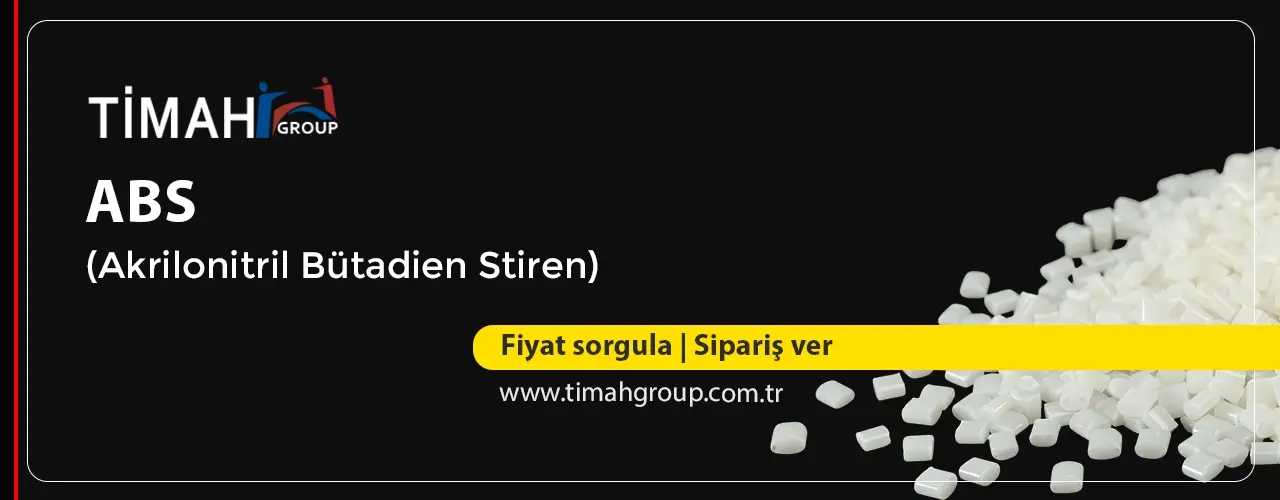Understanding Acrylonitrile Butadiene Styrene (ABS): Properties, Uses, and Types
What is ABS?
Acrylonitrile Butadiene Styrene, commonly referred to as ABS, is a widely used commercial polymer known for its durability, impact resistance, and ease of processing. Produced from crude oil and refined in petrochemical plants, ABS is an amorphous thermoplastic that can be reheated, melted, and molded repeatedly without significant degradation. Its matte finish and structural integrity make it an essential material across various industries, including automotive, electronics, and household appliances.
ABS is composed of three key monomers: acrylonitrile, butadiene, and styrene. Each component contributes to its unique characteristics:
- Acrylonitrile: Provides chemical and thermal stability.
- Butadiene: Enhances toughness and impact resistance.
- Styrene: Adds rigidity and a glossy finish.
This polymer's recyclability, coupled with its versatile applications, makes ABS a sustainable and practical choice for manufacturers worldwide.
Key Properties of ABS
- Mechanical Strength: ABS is known for its high durability and ability to withstand impact.
- Thermal Stability: Performs well across a wide temperature range, though it melts under extreme heat.
- Ease of Processing: Easily molded, sanded, glued, and painted.
- Non-Toxic: Contains no known carcinogens, making it safe for most applications.
- Lightweight: Combines low weight with excellent strength, ideal for structural and aesthetic applications.
Applications of ABS
-
Automotive Industry
Widely used for dashboards, trim components, and lightweight external body parts, ABS reduces vehicle weight, improves fuel efficiency, and enhances durability. -
Consumer Electronics
Commonly used for the housings of computers, printers, and small appliances, thanks to its insulating properties and stylish appearance. -
Household Appliances
Essential for vacuum cleaners, tea makers, and kitchen utensils due to its resistance to wear and its sleek finish. -
3D Printing and Prototyping
A favorite material in 3D printing for its ability to be easily molded, dyed, and finished. -
Toys and Decorative Items
ABS is used in toys like LEGO bricks and decorative items due to its ability to take on various textures and colors.
Types of ABS
Here’s a list of the different types of Acrylonitrile Butadiene Styrene, each suited for specific applications:
-
ABS N50
A versatile general-purpose ABS used in applications requiring durability and strength. -
HM0560
Known for high-impact resistance, making it suitable for automotive and construction uses. -
HR0370
Offers excellent heat resistance and toughness, ideal for demanding environments. -
HR2320
Features enhanced rigidity and thermal stability, making it perfect for industrial purposes. -
HR2340
Known for superior chemical resistance and high performance in challenging conditions. -
SD0140
A standard ABS grade used in consumer goods and decorative applications. -
SD0150
Provides a smooth surface finish, often used in electronics and appliance casings. -
SD0152
Offers high gloss and ease of processing, ideal for aesthetically focused designs. -
SH0150
Durable and tough, suitable for automotive parts and structural components. -
SV0157
UV-resistant, making it ideal for outdoor applications and equipment. -
VH0800D
Premium-grade ABS designed for exceptional impact strength and durability.
Advantages of ABS
- Impact Resistance: Exceptional toughness makes it suitable for high-stress applications.
- Recyclability: As a thermoplastic, ABS can be reheated and reused, reducing environmental impact.
- Customizability: Can be dyed, textured, or finished to meet specific design requirements.
- Lightweight and Strong: Perfect for industries like automotive and construction where weight reduction is critical.
Environmental Considerations
Although ABS is derived from petroleum, it is considered eco-friendly due to its durability and recyclability. Proper disposal methods and the use of additives to enhance UV resistance help extend its lifespan and minimize waste.
Acrylonitrile Butadiene Styrene (ABS) is an exceptional polymer that combines mechanical strength, thermal stability, and versatility. Its broad applications, from automotive components to 3D printing, make it a cornerstone material for industries worldwide. The variety of ABS types further enhances its adaptability, meeting the diverse needs of manufacturers. With its remarkable properties and sustainable potential, ABS continues to play a pivotal role in modern manufacturing.
For all your ABS raw material needs, trust reliable suppliers to ensure high-quality products that meet industrial standards.
